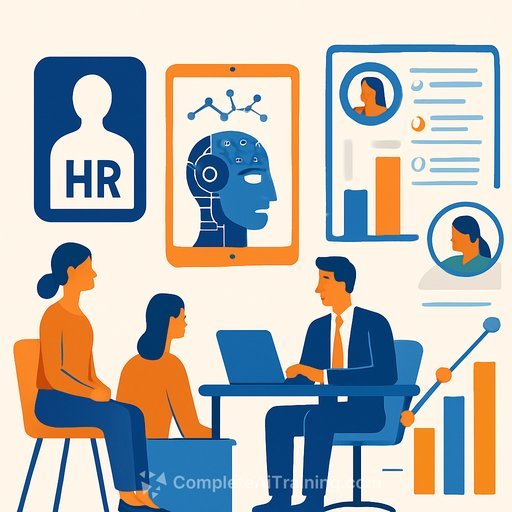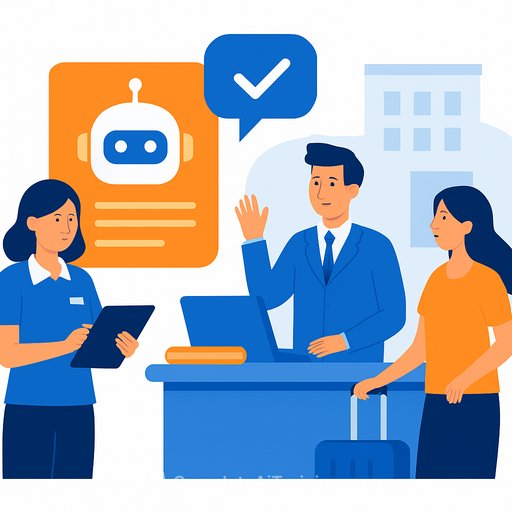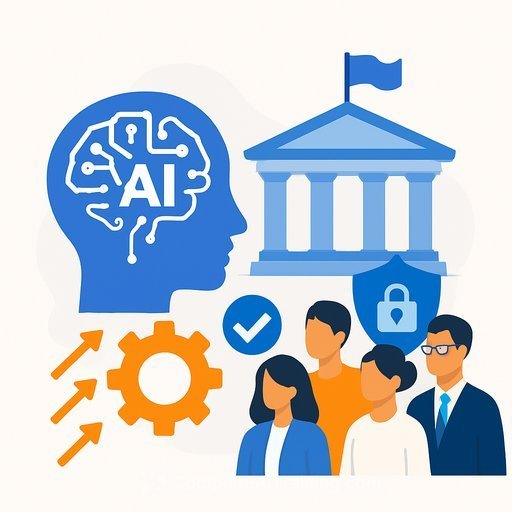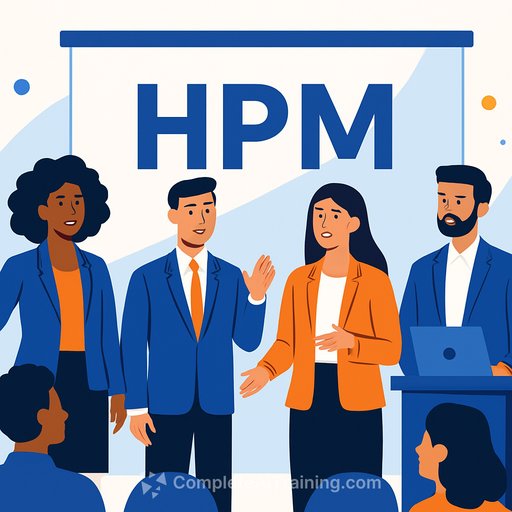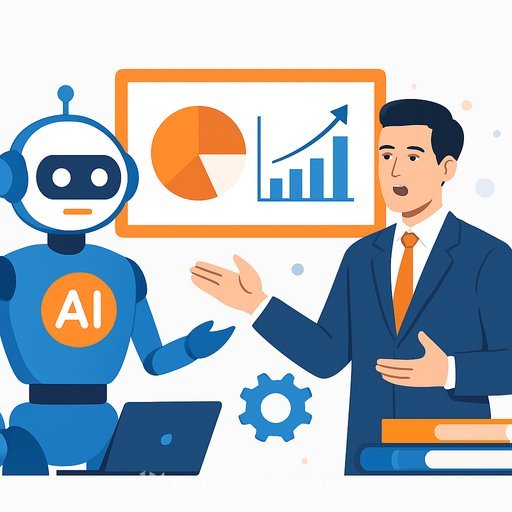HR's Next Chapter: AI, Personalization, and Human Judgment
There was a time when HR meant files, forms, and filing cabinets. Contracts, compliance, and clean records were the job. Ask around then and you'd hear: salaries, attendance, paperwork. Business changed. HR did too.
Global teams, flexible work, and knowledge-first business pulled HR into strategy. Now AI is shifting HR into its boldest phase yet: less administrative, more predictive; less reactive, more intentional.
AI in HR's DNA: From Reactive to Proactive
Tasks that consumed hours-resume screening, interview scheduling, pulse checks-now run in minutes. The real shift isn't speed; it's foresight. Systems interpret behavior, spot pattern shifts, alert you to risks, and recommend action before problems spread.
Think of HR as an early-warning system for engagement, retention, and growth. That's not sci-fi. It's table stakes.
- Instrument your data: connect ATS, HRIS, LMS, and feedback tools into one view.
- Define leading indicators (attrition risk, manager span health, role mobility) and review weekly.
- Pilot AI on narrow use cases first (screening, skills inference) with clear success metrics.
Beyond One-Size-Fits-All: Personalized Work
Annual reviews and blanket training miss how people learn and progress. AI lets HR build individual paths: learning tied to strengths, projects matched to skills, benefits that fit context.
Employees feel seen because the system adapts to them, not the other way around.
- Map skills, not just titles. Keep a live skills graph across roles and teams.
- Serve adaptive learning plans that update as work changes and performance shifts.
- Offer flexible benefits menus based on life stage and location data.
Ethics and Trust: HR as Guardian
Algorithms are fast, not wise. Bias hides in data and models. HR must set the guardrails: fair hiring, transparent performance signals, and respectful monitoring.
Make ethics operational, not philosophical.
- Adopt an AI policy covering consent, explainability, audit trails, and appeal rights.
- Run bias and adverse impact tests on hiring and internal mobility models each cycle.
- Use recognized frameworks like the NIST AI Risk Management Framework and track compliance with EEOC guidance on AI in employment.
Reskilling: The New Social Contract of Work
Jobs aren't vanishing-they're morphing. New roles appear: AI ethicists, model auditors, human-AI collaboration coaches. HR's task is to move people from current work to emerging work with speed and care.
That requires structured reskilling, not ad-hoc courses.
- Publish a skills forecast: what rises, what fades, and which roles transition where.
- Fund role-based academies (talent acquisition, HR ops, L&D, people analytics) with clear pathways and badges.
- Measure progression: enrollment, completion, skills verified, internal moves, time-to-productivity.
- For curated learning by job function, see Courses by Job or browse Latest AI Courses.
HR as the Enterprise Command Centre
Five years out, HR isn't a back office-it's a live dashboard of workforce health. Real-time visibility into headcount, capacity, skills, performance, and culture.
AI copilots don't replace judgment; they tee up options so leaders can decide faster and with more context.
- Stand up a Workforce Intelligence hub with clear data owners and refresh SLAs.
- Standardize talent decisions with scenario planning: hire, build, automate, or redeploy.
- Give managers AI-assisted toolkits for feedback, coaching, and performance check-ins.
What Will Never Change
Tech can find patterns. People build trust. Metrics can flag engagement. Leaders create belonging. Tools can suggest next steps. Meaning still comes from human connection and purpose.
The more digital HR becomes, the more human it must stay: empathy, inclusion, clear values.
The Bottom Line
HR has rewritten its role. Yesterday: record keeper. Today: strategic driver. Tomorrow: culture architect, ethicist, and workforce futurist.
This isn't a small upgrade. It's a new era for work-and HR is writing the blueprint for the AI-first enterprise.
Your membership also unlocks:

